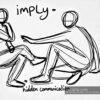reveal meaning
reveal :
to show, to make known
verb
▪ She revealed the surprise party plans.
▪ She showed the surprise party plans.
▪ The company revealed its new product yesterday.
▪ The company showed its new product yesterday.
paraphrasing
▪ disclose – to make known
▪ unveil – to show for the first time
▪ expose – to reveal something hidden
▪ announce – to make a public statement

reveal :
something revealed, a disclosure
noun
▪ The reveal of the new logo excited customers.
▪ The disclosure of the new logo excited customers.
▪ The movie's big reveal kept everyone talking.
▪ The movie's big disclosure kept everyone talking.
paraphrasing
▪ unveiling – disclosure
▪ disclosure – making information known
▪ revelation – something revealed
▪ announcement – public declaration
Pronunciation
reveal [rɪˈviːl]
The stress is on the second syllable 'veal' and sounds like 'ri-VEEL'.
reveal [rɪˈviːl]
Both the verb and noun are pronounced the same way: 'ri-VEEL'.
Common phrases and grammar about reveal
reveal - Common meaning
verb
to show, to make known
noun
something revealed, a disclosure
Part of Speech Changes for "reveal"
▪ revealed (adjective) – something that has been made known or disclosed
▪ revealing (adjective) – showing something previously hidden or secret
▪ revelation (noun) – the act of revealing or something revealed
▪ revelation (noun) – a surprising or previously unknown fact
Common Expressions with "reveal"
▪ reveal the truth – make the truth known
▪ reveal a secret – disclose a hidden fact
▪ reveal details – show specific information
▪ reveal identities – disclose who someone is
Important examples of reveal in TOEIC
Vocabulary examples from the TOEIC test
In TOEIC vocabulary questions, reveal is often used to indicate making information known or disclosing details.
Example of a confusing word: conceal (to hide)
Grammar examples from the TOEIC test
As a verb, reveal is used to show or make something known, often requiring an object in TOEIC grammar questions.
reveal
Idioms and fixed expressions in TOEIC
secret reveal
'making a hidden fact known', used when discussing confidential information.
grand reveal
means 'a big or important disclosure', used to highlight significant announcements.
Differences between similar words and reveal
reveal
,
disclose
differences
reveal is used to make information known, often voluntarily; disclose can imply revealing information that was previously hidden, sometimes under obligation.
reveal
,
unveil
differences
reveal is a general term for making something known, while unveil specifically refers to introducing something new or presenting it publicly for the first time.
Words with the same origin as reveal
The origin of reveal
The word's etymology is not clear.
Word structure
The analysis of the word's composition is unclear.
Words with the same origin
The word's root is unclear or difficult to confirm.







